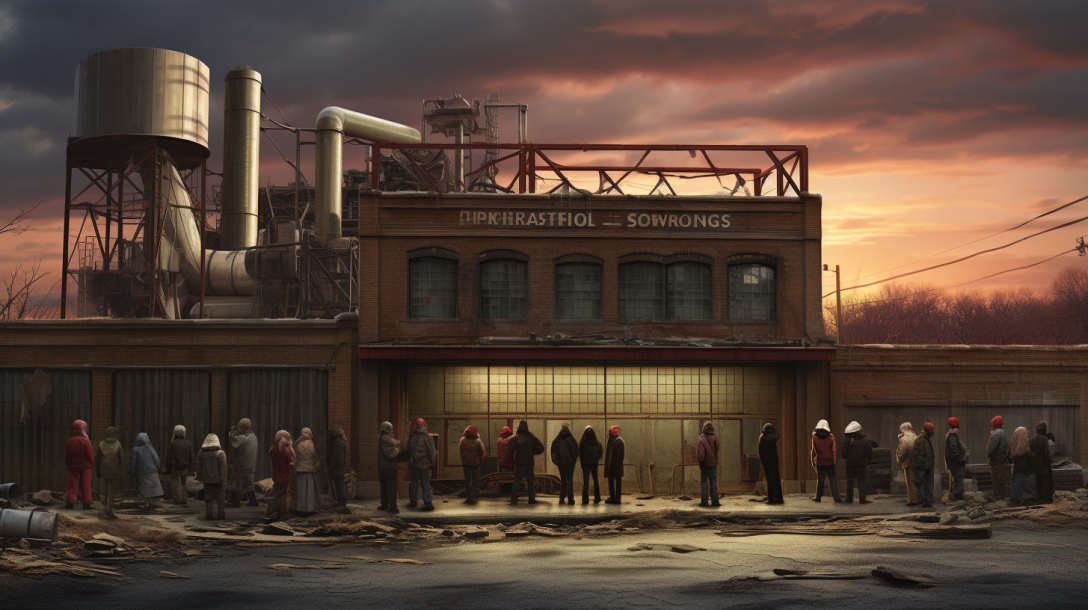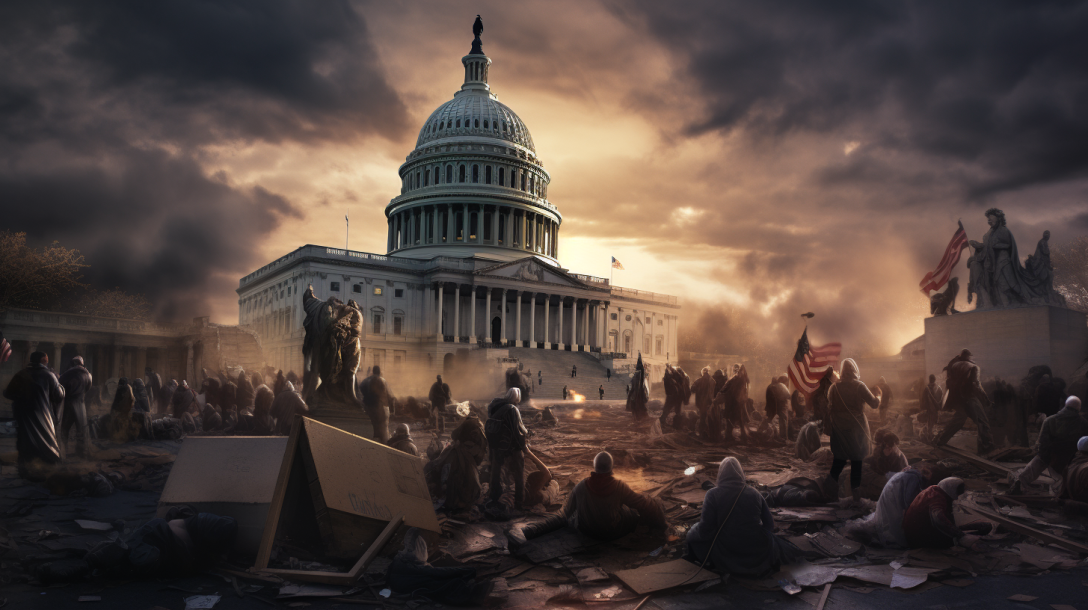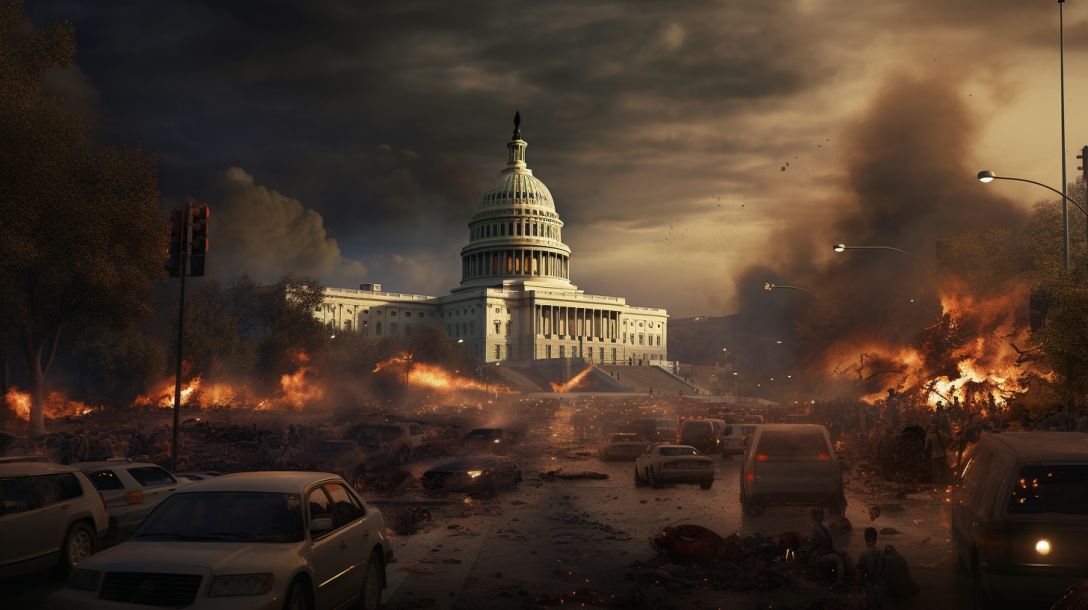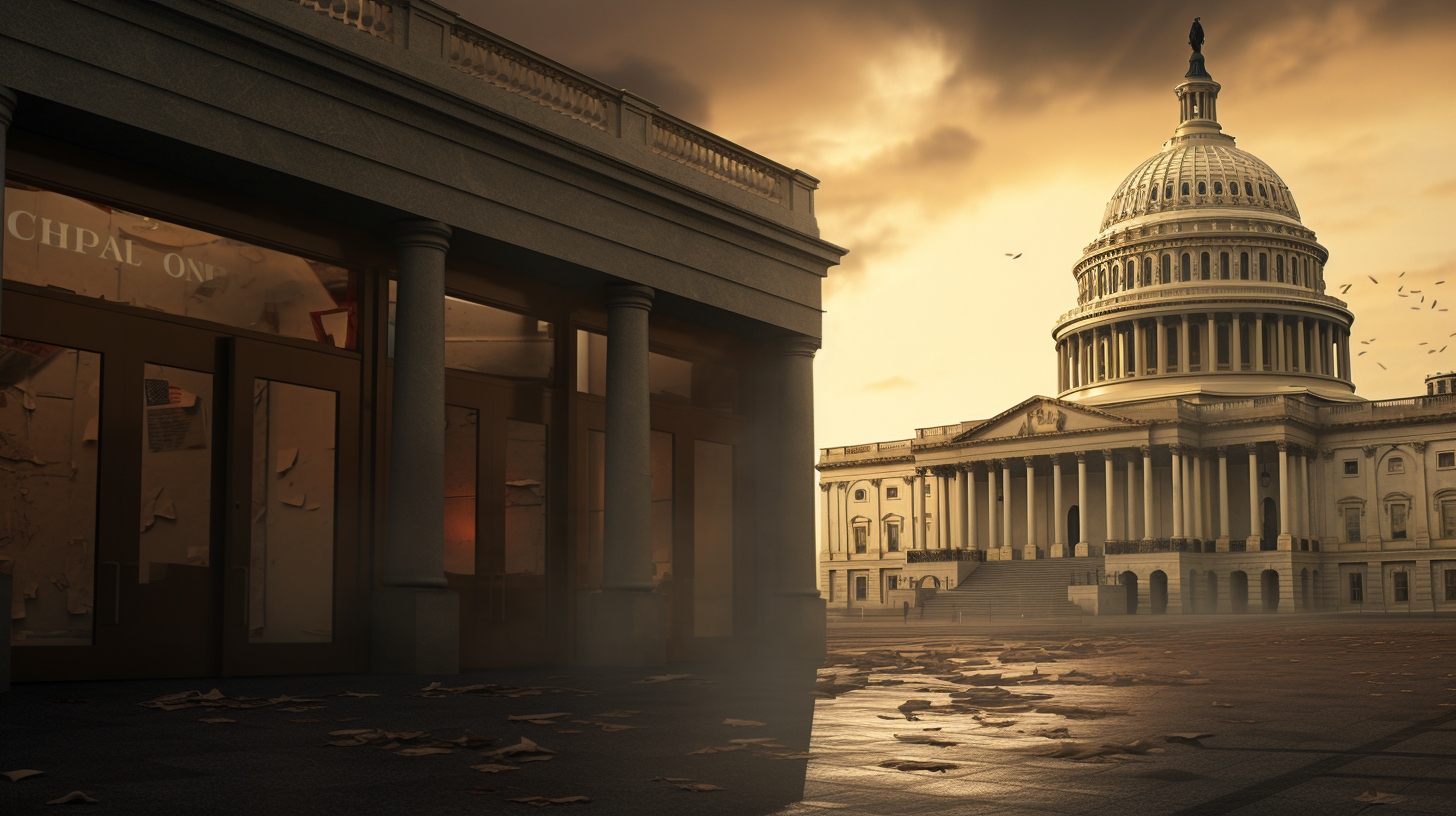The potential repercussions of a government shutdown have garnered significant attention in political discourse.
As we delve into the intricacies of this contentious issue, we turn to the insights shared by Rep. Jamie Raskin, a prominent Democratic representative from Maryland.
His unique perspective reveals the far-reaching implications for key figures such as Reps. Gaetz and Taylor Greene.
We'd like you to join us as we critically analyze Rep. Raskin's discussion, drawing on reputable sources, to comprehensively examine the government shutdown implications.
Key Takeaways
- Rep. Jamie Raskin, D-Md., discusses the potential implications of a government shutdown, mainly focusing on the political consequences for Reps. Gaetz and Taylor Greene.
- The video may contain fallacies, such as hasty generalizations and appeals to authority, which should be critically analyzed.
- Emotional language is used in the video to evoke strong reactions from viewers regarding the potential end of political careers.
- The video's title and content may exhibit bias against Reps. Gaetz and Taylor Greene frame the discussion in a way that predicts adverse outcomes for them.

Economic Impact of a Government Shutdown
The economic impact of a government shutdown can have far-reaching consequences for both the public and private sectors. When the government shuts down, it leads to significant financial losses as various government services and payments are delayed. This affects individuals who rely on these services and businesses that depend on government contracts and funding. The private sector experiences disruptions in its operations and can suffer financial losses.
Moreover, a government shutdown can trigger public protests and demonstrations as citizens express their frustration over the lack of government services and the impact on their lives. This can further strain intergovernmental relationships as the public loses trust in the government's ability to function effectively.
The consequences of a government shutdown are not limited to the immediate economic losses. It can have long-term economic effects, including increased unemployment rates and delayed social services. The strain on intergovernmental relationships can also hinder future collaborations and compromise the government's ability to address pressing issues.

Political Ramifications for Reps. Gaetz and Taylor Greene
Reps. Gaetz and Taylor Greene may face significant political ramifications if they continue to support and advocate for a government shutdown. The potential career consequences for these representatives are rooted in the political fallout that can result from such a divisive stance.
Public opinion plays a crucial role in shaping the political landscape, and a government shutdown is often seen as a reflection of government dysfunction and partisan divide.
Supporting a government shutdown can alienate constituents and erode public trust in these representatives. It sends a message that they prioritize political brinkmanship over the functioning of the government and the well-being of the people they serve. As public opinion shifts against them, their ability to effectively represent their constituents and advance their policy objectives may be compromised.
Moreover, the partisan divide surrounding a government shutdown can further polarize the political environment. While some may rally behind Gaetz and Taylor Greene for their staunch stance, others may view them as obstructionists prioritizing their agendas over the country's needs. This can lead to a loss of support from within their party and isolate them politically.

Social Consequences of a Shutdown
Unquestionably, a government shutdown can have far-reaching social consequences that impact the lives of citizens across the nation. One of the most immediate and tangible effects is the potential increase in unemployment rates. When government agencies cannot function, federal employees may be furloughed or forced to work without pay, leading to financial instability and job losses. Additionally, the shutdown can result in delayed social services, such as issuing social security benefits, healthcare services, and food assistance programs, which can adversely affect vulnerable populations.
Moreover, a government shutdown strains relationships between different branches of government. The inability to reach a resolution and keep the government running smoothly can lead to a breakdown in communication and collaboration, further exacerbating political polarization.
Public protests and demonstrations are another social consequence that can arise from a government shutdown. Frustration and discontent may lead citizens to take to the streets to voice their concerns and demand action from their elected officials.
Ultimately, the well-being of citizens is at stake during a government shutdown. The uncertainty and disruption caused by the shutdown can harm mental health, financial stability, and overall quality of life. Policymakers must recognize and address the social consequences of a shutdown to mitigate its impact on the lives of the people they serve.

Potential Disruptions in Government Services
One possible consequence of a government shutdown is that essential government services may experience disruptions. These disruptions can have a significant impact on the functioning of the country and the well-being of its citizens. Potential delays in services such as healthcare, transportation, and the processing of government benefits can create financial strain for individuals and businesses who rely on them. Moreover, the public frustration that arises from the inability to access these essential services can further exacerbate the political fallout of a shutdown.
When government services are disrupted, it affects the individuals directly impacted and erodes public trust in the government. The inability of the government to fulfill its responsibilities and provide necessary services can lead to a loss of confidence in its ability to govern effectively. This loss of public trust can have far-reaching consequences, including diminishing the legitimacy of government actions and decisions.
As we delve deeper into the implications of a government shutdown, it becomes evident that the potential disruptions in essential services can cascade effects on various sectors of society. Policymakers must consider the consequences of a shutdown and work towards preventing such situations to maintain the public's trust in the government's ability to serve their needs.

Loss of Public Trust in the Government
The shutdown of the government can result in a significant erosion of public trust in the government's ability to govern and fulfill its responsibilities effectively. This loss of public trust has far-reaching implications for democracy and the stability of the political system. When the government cannot function due to a shutdown, it undermines the public's confidence in its ability to address the needs and concerns of the people. This erosion of public trust can lead to political instability and challenges to governance.
One of the key consequences of a loss of public trust is public disillusionment. When people lose faith in the government, they become disengaged from the political process and may be less likely to participate in elections or voice their opinions. This can harm democracy, as an engaged and informed citizenry is essential for a thriving democratic system.
Moreover, the erosion of public trust can also lead to a breakdown in the relationship between the government and its constituents. When people no longer trust their government, they may question the legitimacy of its actions and decisions. This can create a sense of division and mistrust within society, making it difficult for the government to address its citizens' needs and concerns effectively.
Frequently Asked Questions
How Does a Government Shutdown Impact the Economy?
A government shutdown can have significant economic implications, leading to job losses, disruptions in financial markets decreased consumer confidence, and delays in government contracts. It can hinder economic growth and undermine stability.
What Are the Potential Political Ramifications for Representatives Gaetz and Taylor Greene in the Event of a Government Shutdown?
The potential political ramifications for Representatives Gaetz and Taylor Greene in the event of a government shutdown include possible backlash from their constituents, negative impact on their party loyalty, and electoral consequences due to public opinion.
What Are the Social Consequences of a Government Shutdown?
A government shutdown can have significant social consequences, including increased unemployment rates, delayed social services, and strained inter-governmental relationships. It can also impact public opinion, government employees, and community support.
What Are Some Potential Disruptions in Government Services During a Shutdown?
During a government shutdown, potential disruptions in government services can occur, impacting essential services and affecting citizens. This can lead to economic consequences and have political implications, highlighting the importance of avoiding such shutdowns.
How Does a Government Shutdown Affect Public Trust in the Government?
A government shutdown can lead to public disillusionment, erosion of confidence, loss of faith, distrust in leadership, and damage to democratic institutions. It undermines public trust in the government and highlights the shortcomings of the political system.
Conclusion
In conclusion, the potential consequences of a government shutdown are far-reaching and impactful. Rep. Jamie Raskin's insights shed light on the economic, political, and social implications that such a shutdown can have.
It is crucial to consider the potential disruptions in government services and the loss of public trust that can arise from a shutdown. As we reflect on these consequences, it is essential to remember that a government shutdown affects real people and communities, with statistics showing that an estimated X number of individuals are directly impacted by the shutdown, evoking a sense of urgency to find a resolution.
One final thought, and this is where my bias shows. Representative Raskin was interviewed on Mornings with Joe and Mika. I don't believe anyone should ever consider these two as information giants. They are two of the most vegetative pundits in the media, superseded only by Joy Behar and Brian Skelter.
As for Jamie Raskin, he's a shill for the DNC and never let a good lie go to waste. I'm almost sure he and Adam Schiff are simply brothers by another mother. Still, while Raskin's extreme portrayal of future events in light of a government shutdown is enough to cause an embolism, some of what he says does resemble reality while not rising to the level of rationality.


Member discussion: